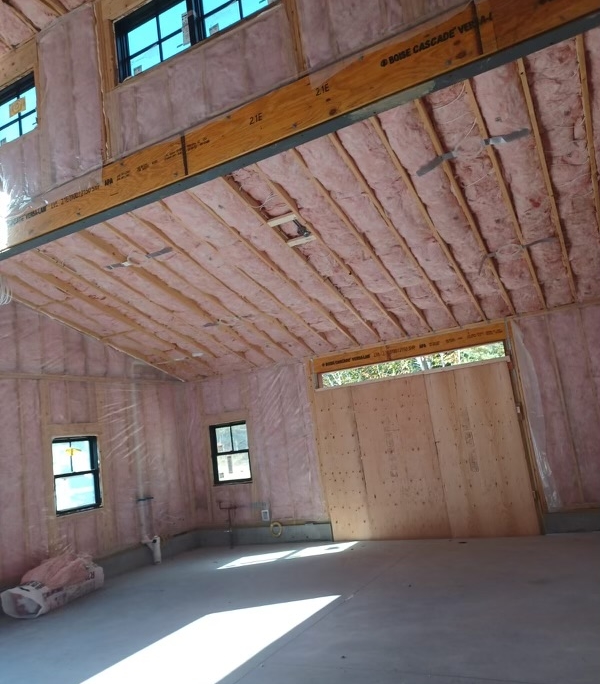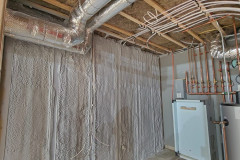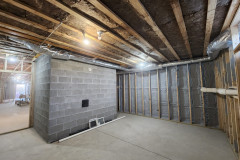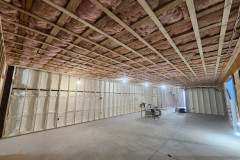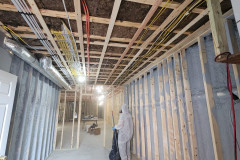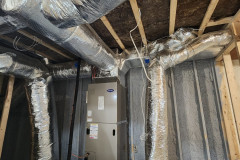Reasons to Insulate Basements
A cozy home is a wonderful thing during the cold New England winters and the sweltering summer. A cozy home begins in the basement.
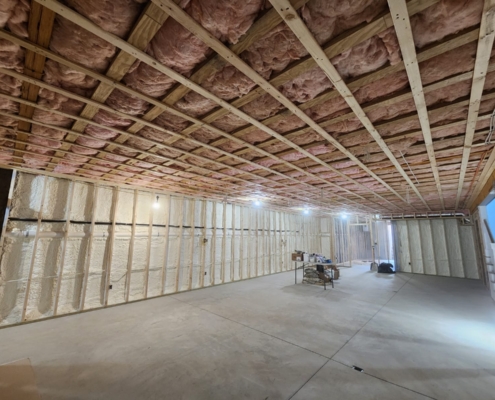
Basements can account for about 25 percent of a home’s total heat loss. The large, uninsulated surface area below ground level can allow significant air leakage. An insulated basement plays a vital role in a home’s insulation system– keeping cool air in during the summer and keep a home warmer during the cooler months.
A properly insulated basement boosts comfort, cuts energy bills, and reduces drafts.
Basement insulation has other benefits, including:
- Safeguarding home’s structural integrity by preventing moisture damage
- Protecting exposed pipes and HVAC systems from extreme temperature swings causing them to burst or breakdown
- Filling-in openings to keep mice and other rodents from entering the home
- Delivering noise control to dampen the sounds from a mechanical or utility room
Common basement insulation options include:
- Fiber glass insulation
- Foam board, or rigid board insulation
- Sprayfoam insulation
Each type of insulation has its strengths when installed properly. Choosing the best way to insulate will depend on the design of basement and how the basement is used.
Contact us! We’ll come to you to inspect the issues in your basement, discuss your goals on its use, and provide the best possible insulation solution for your budget.

